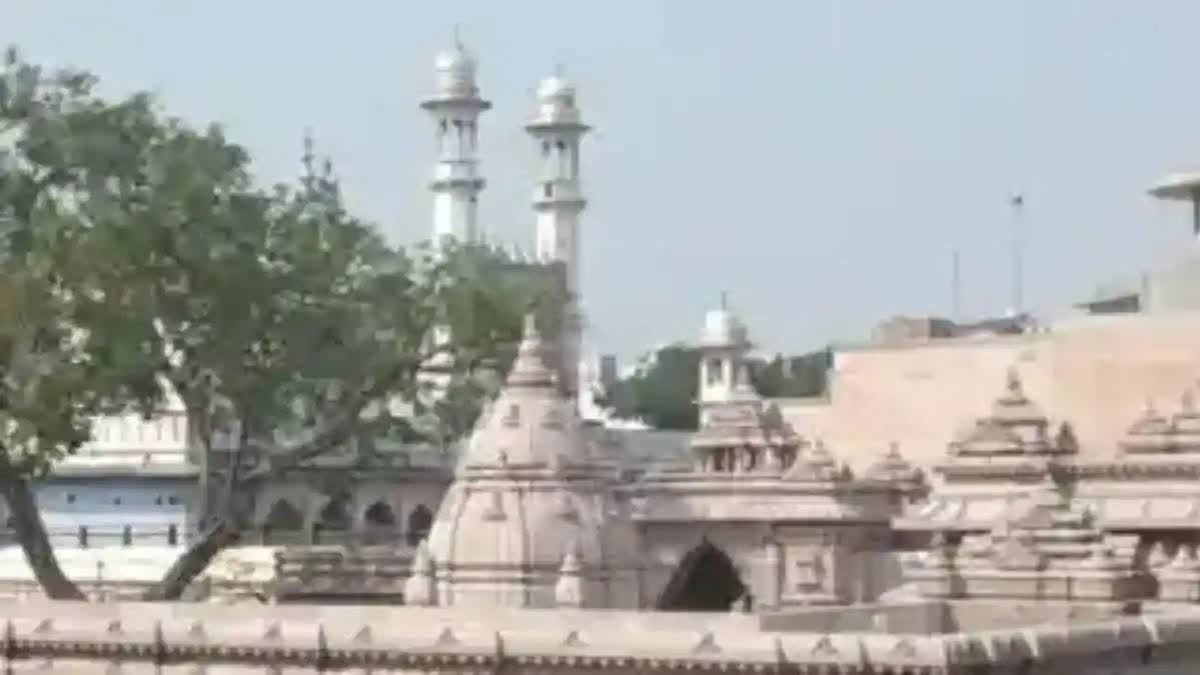Varanasi (Uttar Pradesh): Security measures have been beefed up outside the Gyanvapi mosque, a day after the Archaeological Survey of India (ASI) report on the Gyanvapi mosque complex revealed there "existed a large Hindu temple prior to the construction of the existing structure". Following the release of a survey report by the Archeological Survey of India, confirming evidence of Hindu temples, today's Jumma (prayers held by muslims on every friday) at the disputed Gyanvapi mosque holds a special importance. Consequently, stringent security measures were put in place to prevent any untoward incidents.
The media was intentionally kept at a distance from Gyanvapi, ensuring that the situation remained calm for the peaceful execution of the Friday prayer. The authorities were keen on avoiding any misinformation or unnecessary panic.
However, there was a conscious effort to manage any potential conflicts in the area. Notably, The Archaeological Survey of India (ASI) report on the Gyanvapi mosque complex revealed that a pre-existing structure appeared to have been destroyed in the 17th century, and "part of it was modified and reused," adding that based on scientific studies, it can be said that there "existed a large Hindu temple prior to the construction of the existing structure." "The Arabic-Persian inscription found inside a room mentions that the mosque was built in the 20th regnal year of Aurangzeb (1676-77 CE).
